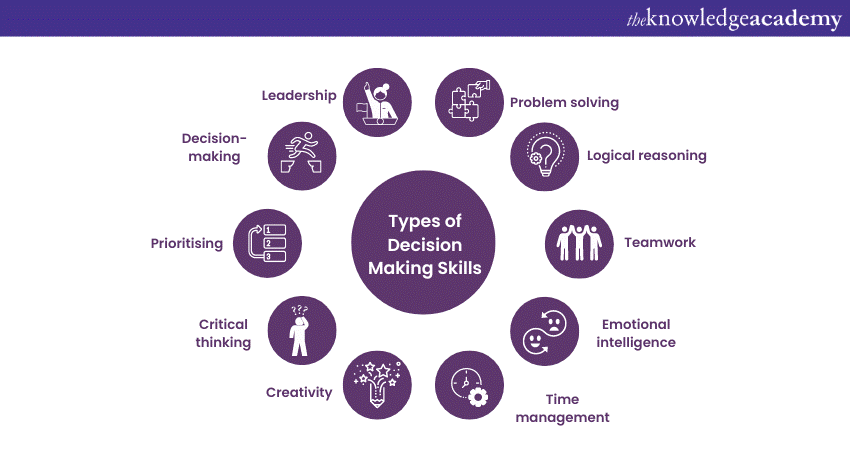Revealing the Mysteries of Quick and Confident Choice Making

In this fast-paced environment, the capacity to make decisive and speedy choices is more essential than ever. Regardless of whether you're dealing with choices in your own life, at work, or in positions of authority, the abilities you build in making decisions can profoundly affect your results. Excelling in the art of smart decision-making involves grasping the mental aspects behind our decisions and embracing effective strategies that allow us to act decisively.
As we investigate multiple strategies to boost your decision-making capabilities, you'll uncover proven methods to handle uncertainty, improve your critical thinking, and tackle the obstacles of indecision. From discovering how to integrate gut feelings with analytical data to developing routines that foster clear thinking, this article will equip you with necessary resources to improve your choices with assurance and ease. Welcome the process of unlocking these strategies and watch as your life transforms through decisive choices.
Established Techniques for Effective Decision-Making
Understanding the craft of intelligent decision-making requires a combination of structured strategies and intuitive understanding. One helpful approach is to utilize decision-making frameworks. These frameworks, such as the SWOT or decision trees, help break down options into manageable components, allowing you to evaluate the pros and cons in a structured way. By visualizing your options, you can illuminate potential outcomes and steer clear of getting overwhelmed in the intricacies of your decisions.
Another proven strategy is to employ the power of reflection. In a fast-paced world, it's easy to accelerate decisions, but taking a moment to reflect can lead to better outcomes. This moment allows you to gather your thoughts, evaluate your emotions, and synchronize your choices with your principles. It also presents an opportunity to consider different angles, which can be particularly beneficial when facing difficult decisions.
Additionally, enhancing your emotional intelligence can significantly enhance your decision-making skills. Being aware of your feelings and comprehending how they affect your actions facilitates a more balanced approach. By realizing when feelings are driving your conclusions—whether fear, enthusiasm, or uncertainty—you can take actions to lessen their effect and confirm your choices are driven by both rationality and intuition.
Understanding the Psychology of Effective Choices
Grasping psychology plays a significant role in making effective decisions. Our cognitive frameworks, formed through past experiences and cognitive biases, significantly influence how we analyze information and assess risks. Common biases, such as confirmation bias and anchoring, can cloud our judgment and lead to poor choices. By recognizing these biases, we can condition ourselves to approach decisions more impartially, facilitating clearer thinking and better outcomes.
The ability to understand emotions is a key factor in decision-making. The ability to recognize and manage our emotions, as well as those of others, allows us to handle complex situations with greater ease. When facing tough choices, emotionally intelligent individuals can balance feelings with rational thought, yielding more balanced and confident decisions. By developing our emotional awareness, we can minimize anxiety and second-guessing, in the end resulting in quicker and firmer choices.
Practicing mindfulness also plays a necessary role in the decision-making process. By nurturing present-moment awareness, we can prevent the trap of overthinking and indecision. When we stop to think, we are better prepared to evaluate our options without being burdened by fear or pressure. Integrating mindfulness techniques into our daily routines can improve our focus, diminish stress, and boost our overall decision-making capabilities, contributing to more fulfilling and effective choices.
Techniques to Address Choice Fatigue

Decision fatigue can considerably diminish your capacity to make choices efficiently. One effective approach is to curtail the amount of decisions you have to decide during the day. This can be achieved by creating habits or making specific choices habitual, such as what you wear or your breakfast choices. By lowering the cognitive load associated with insignificant decisions, you free up mental energy for more important choices later during the day.
Another useful strategy is to prioritize your decisions. Start by identifying which Have a peek at this website hold the highest value and demand more attention. Reserve your peak decision-making times for these essential choices, as your focus typically is highest at specific times of the day. Knowing when you are most focused can help you focus your attention towards important decisions, thereby lessening fatigue and boosting the quality of your conclusions.
Lastly, incorporating intervals into your choice-making method can be a major improvement. When faced with a succession of decisions, take brief breaks to reset your mind. Even decision fatigue can help restore concentration and clear thinking, making it easier to handle next choices with a clearer mindset. Additionally, practicing mindfulness techniques during these pauses can help ground your mind and reduce the overbearing sense of urgency often associated with decision-making.
